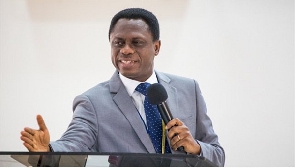We have in our issue today two stories that demand critical attention as they benefit both the government and the public in ways that serve their different interests.
The first story has to do with the tidal waves that have hit Anlo Beach, a fishing community, in the Shama District of the Western Region.
Tidal waves are not new in the country, as they have been occurring in various coastal communities in the country.
For instance, in June last year, some communities in the Volta Region were hit by tidal waves, having suffered similar incidents in 2021.
Any time such tidal wave incidents occur, the government comes in with all manner of assistance and promises to assuage the suffering and fears of the affected communities.
However, later, the victims complain that their expectations have been dashed as the government has failed to honour its word.
For instance, when the June 2023 tidal waves occurred in the Volta Region, an Assembly member of the Amutinu-Salakope area, Kumawu Sylvester, said the government provided relief items to the 2021 victims but did not provide any solutions that would be sustainable.
He said the major solution to this situation is a sea defence wall.
Today, the people of Anlo Beach are also asking for assistance, including resettlement and a sea defence wall, “else the area would be totally wiped out.”
The Ghanaian Times is aware that the government is undertaking defence projects at such places as Keta, Ada, Sakumono, New Takoradi, Komenda, Elmina, and Cape Coast.
This is commendable, and the paper joins the appeal to include Anlo Beach in the list to reduce the trauma and fear of the people there and give hope that their community will be saved.
The problem is that massive projects like sea defence walls take a long time to complete, and so the beneficiary communities must be educated enough to understand all the related issues.
If this is not done, they may take even the delay as a way to deceive them and thus use the situation to discredit the government.
In fact, if there are people who are not trusted by the general public, politicians are at the top of the list.
In the face of this, politicians must do well to take advantage of every opportune time to prove the people wrong.
Currently, sea defence wall projects are an opportune time to do so.
And this brings the Ghanaian Times to the second related or relevant issue to be touched on in this piece.
The Ministry of Lands and Natural Resources says it will soon publish a list of public lands that have been leased out to individuals and private entities by the state since the coming into force of the 1992 constitution on January 7, 1993.
It says the decision, apart from updating the public on the state of public lands, is also to put to rest the perennial accusation and counter-accusation of land grabbing by the political class.
Without going too much into this, we would like to state that it appears the grabbing accusation has become more ingrained in the minds of members of the public.
The problem in this country is that it is very difficult to make politicians take account of their stewardship, and so they have become kings and queens of all they survey.
It is time the country’s managers became sensitive to public plight and opinions, transparent, and showed urgency in all their dealings to attract public trust.
Editorial News of Thursday, 15 August 2024
Source: ghanaiantimes.com.gh













